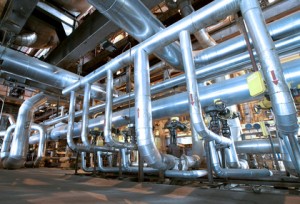Seriously brilliant maths careers can be achieved ..
When she was younger, my sister really wanted to work on the checkout at our local supermarket…that’s using maths in a really practical way – all that addition! 🙂
Although, behind the scenes of any retailer, there’s an amazing range of skilled professionals. Making sure the shelves are stacked involves statistics, logistics and algebra. A career working with a supermarket can make excellent use of your maths degree.
Or… you could consider any of these other seriously brilliant maths careers:
1. An astronaut
There are actually three types of astronaut in the US space programme
- Commander or Pilot – responsible for the mission, crew, vehicle operations, deploying satellites.
- Mission specialist – works in areas such as shuttle operations, experiments and spacewalks
- Payload specialists – specialised duties that are specific to the mission.
Astronauts use maths in a variety of precise ways, from how to make the spacecraft fly – to the angle required for re entry back to Earth.
2. Air traffic controller
Air traffic controllers are responsible for co-ordinating how aircraft fly around the world – from airport congestion to crossing vast continents.
When landing or taking off they need to direct air traffic to make sure that the planes stay a safe distance apart; while also planning the most efficient routes.
Maths is used to understand speed, distance, velocity and altitude. There is a lot of statistical data and air traffic controllers need to be able to deal with large amounts of information.
3. Mechanical engineer
Maths careers can lead to excellent qualifications in mechanical engineering – working in a wide variety of industries in areas such as research, manufacturing, testing and developing.
Strong (and continuing) maths knowledge is very important in for a number of reasons:
- There are lots of equations and mathematical expressions that are used in engineering
- Mathematics is a tool for solving problems – good analytical skills can be required
- The increasing use of computers requires data manipulation, simulation and analysis
4. Industrial designer
Industrial designers are responsible for making sure the details are worked out before a product is made.
They work behind the scenes to design the features, appearance, materials and ergonomics of many products—from toasters to mobiles —that we use every day.
A designer combines art, science and technology and needs exceptional visualisation skills. Mathematical skills are required in geometry, modelling and data.
5. Film animator
An animator needs a good knowledge of geometry in order to understand how objects move and change.
A typical animator will produce around 100 ‘frames’ every week. Each frame is rapidly displayed in order to create the illusion of movement in a film, video game or a website application. 100 frames is about 4 seconds – so animators need a lot of patience!
6. Urban planner
Urban planners help to work out the future needs of the population and recommend improvements for towns and cities.
They use mathematical models to analyse the locations of roads, schools, hospitals and different types of infrastructure.
Good statistical knowledge and presentation skills are required. Urban planning can be varied and – as there is more pressure on ‘city space’ – increasing creativity is required.
7. Nuclear engineer
Nuclear engineers are specialists in the use of radioactive materials in manufacturing, medical imaging technology, agriculture and many other industries. They could be involved in research, waste disposal and the development of power generation.
Maths is required in all areas of nuclear engineering, particularly calculations involving safety, instrumentation and control.
8. Political scientist
Political scientists try to predict the probability of political events happening. They might be involved in a wide range of roles such as welfare reform, elections and foreign relations.
Political scientists study the impact of government policies and are closely involved in statistical analysis.
9. Stockbroker
Stockbrokers use maths in all sorts of ways from expected returns, tax, share prices to inflation rates. It’s very important that stockbrokers understand all the calculations as they have to work very quickly to respond to market conditions.
A lot of the information is presented graphically, so being able to read information and extrapolate data is a useful skill.
10. Robotics Engineer
Robotics is a rapidly emerging and constantly developing career choice. Robots are used in all sorts of industries – from building cars to underwater excavation.
A strong mathematics ability is required as a robotics engineer will use electronics, mechanics and software. All these disciplines make use of mathematics, from algebra to complex analysis techniques.
Here’s a range of posts to get you started!
How to solve quadratic inequalities
nth term of a quadratic sequence
AQA GCSE maths 2018 higher paper 1
Here’s a link to my YouTube channel










What about a programmer or game developer? I’d say that was an awesome career and it involves a lot of mathematics..
Thanks Tim – definitely should do another list!